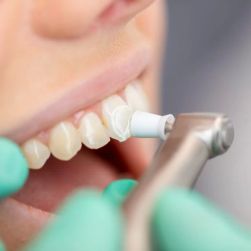Understanding Tooth Decay in Children
Tooth decay, also known as dental caries or cavities, is a prevalent health issue affecting children in the United States. Despite advances in pediatric dental care, tooth decay remains the most common chronic disease among children aged 5 to 11 years. The Centers for Disease Control and Prevention (CDC) reports that approximately 20% of children in this age group have untreated cavities. This statistic underscores the importance of addressing oral health in children and ensuring that parents are well-informed about prevention and treatment strategies.
At Dentistry Toothtruth, we are committed to educating parents and caregivers about maintaining optimal oral hygiene for their children. Understanding the causes of tooth decay and implementing effective preventive measures can significantly improve children's oral health outcomes and well-being.
Common Causes of Tooth Decay in Children
Tooth decay in children can be attributed to several factors. First and foremost is the frequent consumption of sugary foods and beverages. Sugar interacts with bacteria in the mouth to produce acids that attack the tooth enamel, leading to decay. This is particularly concerning given the high sugar content in many popular children's snacks and drinks.
Moreover, inadequate oral hygiene practices contribute to tooth decay. When children do not brush and floss regularly, plaque—a sticky film of bacteria—builds up on the teeth and can cause cavities. This can be exacerbated by improper brushing techniques or not reaching all areas of the mouth.
Parental guidance and supervision play a crucial role in reducing the risk of tooth decay. Teaching children proper brushing and flossing techniques and promoting a balanced diet can lay the foundation for lifelong oral health. For more insights and resources, visit the Dentistry Toothtruth website.
Preventive Measures to Combat Tooth Decay
Preventing tooth decay requires a multifaceted approach. A balanced diet low in added sugars is essential. Encouraging children to choose fruits, vegetables, and whole grains over sugary snacks can dramatically reduce the risk of developing cavities.
Regular oral hygiene practices should be established early in a child's life. Parents should teach their children to brush their teeth at least twice a day with fluoride toothpaste and to floss daily. Consider using fun and engaging methods to encourage these habits, such as using colorful brushes or playing favorite songs during brushing time.
Routine dental check-ups are equally important. Dental professionals can provide fluoride treatments and sealants, which offer additional protection against decay. At Dentistry Toothtruth, our pediatric dental specialists are dedicated to providing personalized care and education to safeguard your child's dental health.
Recognizing and Addressing Tooth Decay in Early Stages
Identifying tooth decay in its early stages can prevent more severe dental issues. Parents should be aware of the signs, such as white spots on the teeth, sensitivity, or visible holes in the teeth.
If you suspect that your child has a cavity, it is crucial to consult a dentist immediately. Early intervention can prevent the decay from spreading and causing pain or infection.
At Dentistry Toothtruth, we offer comprehensive diagnostic services and personalized treatment plans to address tooth decay effectively. By catching cavities early, we can minimize the need for more invasive procedures.
Treatment Options for Tooth Decay in Children
When tooth decay is detected, several treatment options may be considered. The treatment plan often depends on the severity of the decay and the specific needs of the child.
For minor cavities, dental fillings are the most common treatment. This involves removing the decayed portion of the tooth and filling it with a durable material. In cases of severe decay, a dental crown may be necessary to restore the tooth's shape and function.
Tooth extractions might be performed if the decay is extensive, affecting the tooth's structure beyond repair. While this is typically a last resort, it ensures that the infection does not spread to surrounding teeth or gums.
The dental experts at Dentistry Toothtruth prioritize minimally invasive techniques whenever possible, focusing on preserving natural teeth and enhancing oral health.
The Role of Parental Education and Involvement
Parental education and involvement are vital in preventing and managing tooth decay in children. Educating parents about the importance of regular dental visits and proper oral hygiene practices can have a lasting impact on a child's oral health.
Parents should be active participants in their child's dental care routine, ensuring that brushing and flossing are performed correctly. Additionally, parents should model good oral hygiene behavior to encourage their children to adopt similar habits.
At Dentistry Toothtruth, we provide resources and guidance to help parents become advocates for their children's oral health. By working collaboratively with dental professionals, parents can play a proactive role in preventing tooth decay.
Conclusion: Encouraging Better Oral Health for Children
Tooth decay is a common and preventable condition that affects many children. By understanding its causes and implementing effective preventive measures, parents can significantly reduce the risk of dental cavities in their children.
Encouraging a balanced diet, promoting regular oral hygiene, and scheduling routine dental check-ups are crucial steps in maintaining healthy teeth. Furthermore, early intervention and treatment can prevent more serious dental problems and ensure that children enjoy a lifetime of healthy smiles.
Taking proactive steps to educate and involve children in their oral health care is a valuable investment in their overall well-being. At Dentistry Toothtruth, we are committed to supporting families on this journey, providing expert care and comprehensive resources to ensure optimal dental health for children.






